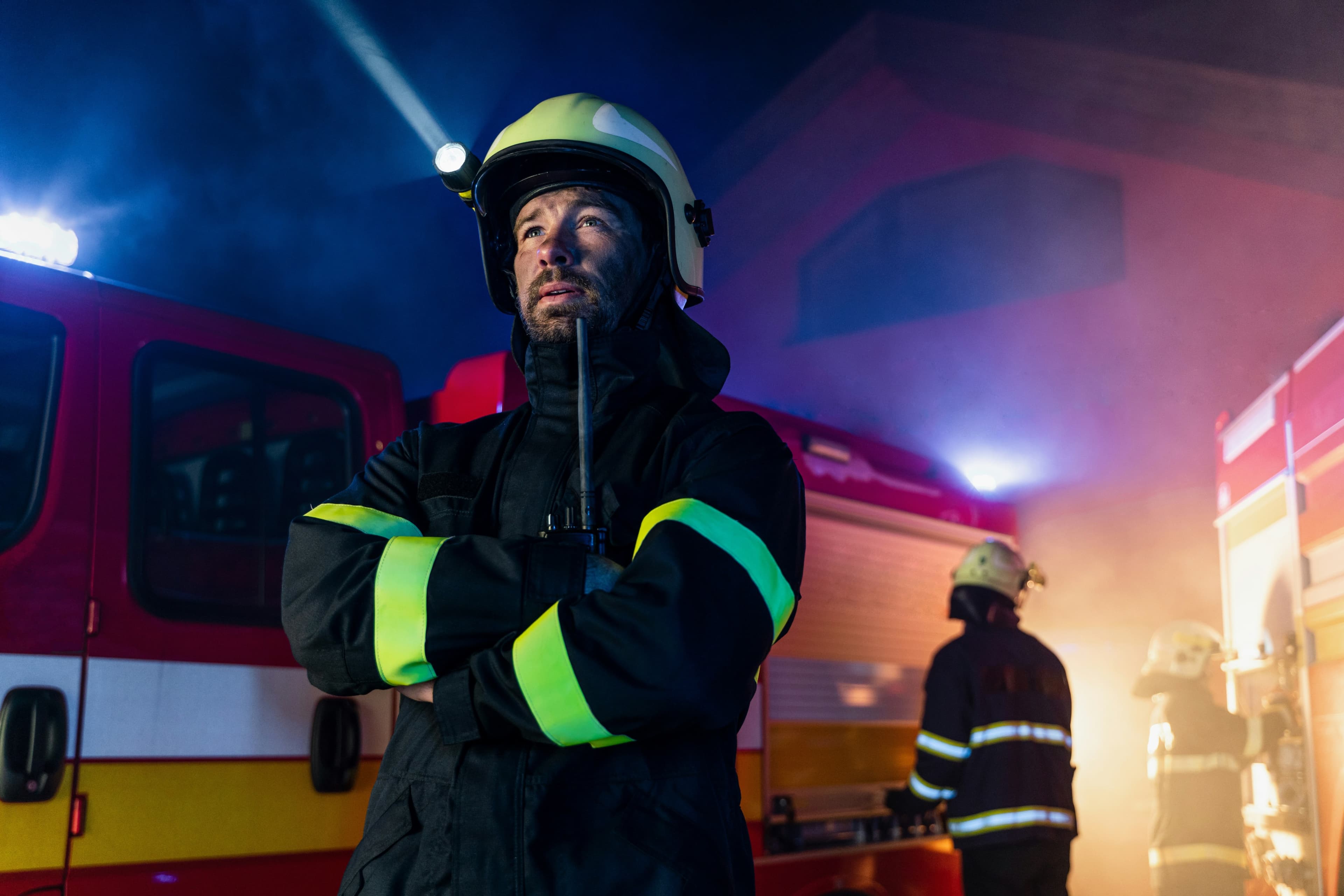
The Future of 911: Embedding Mental Health in Public Safety Teams
One of the most impactful shifts in modern public safety is how cities are beginning to integrate behavioral health professionals directly into emergency response teams. Take Denver’s Support Team Assisted Response (STAR) program, for example. This innovative approach sends mental health clinicians and paramedics to certain 911 calls that don’t involve weapons or immediate threats. These include situations involving mental health crises, substance misuse, or homelessness. Since launching as a pilot in 2020, STAR has diverted thousands of calls away from traditional law enforcement, giving police more time to focus on urgent enforcement needs while ensuring individuals in crisis get the specialized care they need. Not only does this reduce the potential for escalation, but it also helps connect people with long-term support, creating better outcomes for individuals and the wider community1.
For cities thinking about launching similar initiatives, strong collaboration across agencies is essential. In Denver, STAR is a joint effort between the Department of Public Health & Environment, the Police Department, and local nonprofits like WellPower. Setting clear protocols, training 911 dispatchers to identify which calls are right for STAR, and securing ongoing funding are all key to making it work. Communities looking to replicate STAR’s success should start by assessing local needs and bringing stakeholders to the table early on. That way, the program can be tailored to fit the unique challenges and demographics of each area, while keeping equity and safety front and center2.
Enhancing Infrastructure to Prevent Crime and Injury
Sometimes, making a city safer starts with how streets and public spaces are designed. Denver is increasingly leaning on the principles of Crime Prevention Through Environmental Design (CPTED) to help reduce crime in both neighborhoods and business districts. CPTED strategies can be as simple as installing better lighting, clearing sightlines, or bringing life to underused spaces through community events and programming. A good example is the city’s investment in redesigning bus stops and pedestrian corridors to make them more visible and less inviting for loitering, especially in areas where property crimes are more common3.
Traffic safety gets a boost from thoughtful design, too. Features like curb extensions, raised crosswalks, and protected bike lanes don’t just look nice, they actually help protect people walking or biking. These improvements are a big part of Vision Zero Denver’s engineering work and have shown real results in reducing crashes. Residents can play a role here as well. By partnering with the Department of Transportation and Infrastructure (DOTI), neighborhood groups can request safety audits and push for changes where needed. If you notice repeated speeding or a dangerous intersection in your area, reporting it through tools like 311 or PocketGov can help prioritize fixes where they’re needed most4.
Data-Driven Accountability and Performance Measurement
Transparency and accountability are cornerstones of public safety and data plays a big role in both. In Denver, continued investments in performance dashboards and open data platforms help make safety efforts more visible and effective. The Denver Police Department shares crime stats, use-of-force data, and response times online, giving both residents and decision-makers a clearer picture of what’s happening. Behind the scenes, leadership uses Key Performance Indicators (KPIs) to track how officers are deployed, how cases are resolved, and how well they’re engaging with the community, all to make sure resources are lining up with the city’s safety priorities5.
But data can do more than just track performance. When public safety data is combined with other information, like housing instability trends or EMS call volumes, it can reveal the deeper issues driving crime and disorder. That kind of insight allows for smarter, more preventative action. For instance, if a neighborhood shows both high 911 call rates and low access to services, that could signal a need for mobile health units or outreach teams. Cities that make cross-departmental data sharing a standard practice often find they’re better equipped to not only respond to issues but also prevent them in the first place6.
Strengthening Youth Engagement and Prevention Programs
When it comes to public safety, investing in young people is one of the smartest long-term strategies a city can take. In Denver, that’s happening through programs like the Youth Violence Prevention Action Table (YVPAT), which brings together city agencies, schools, and community groups to tackle the root causes of violence. By identifying youth who may be at risk and connecting them with mentors, job training, or mental health support, the city is working to intervene before problems escalate. These efforts are backed by data from Denver Public Schools and the Office of Children’s Affairs, helping make sure support reaches the right kids at the right time7.
Recreation also plays a big role in prevention. The “My Denver Card” program gives students free access to rec centers and cultural institutions, offering safe, enriching spaces after school. When combined with violence interruption programs like those run by the Gang Rescue and Support Project (GRASP), these initiatives help build trust with youth and provide meaningful alternatives to risky behaviors. Cities might consider evaluating their own recreation programming through a safety lens, maybe certain centers need more staff, longer hours, or new activities to better meet local needs8.
Building Resilience Through Emergency Preparedness
Public safety isn’t just about crime, it’s also about how well a community can respond to emergencies and bounce back afterward. That’s where Denver’s Office of Emergency Management (OEM) comes in. Through Neighborhood Emergency Preparedness Programs, OEM trains residents to handle those critical first 72 hours after a major event. These trainings cover everything from basic first aid to communication tips and how to coordinate with local agencies. The idea is simple: if more people are ready to act quickly, fewer lives will be lost and emergency crews can focus on the most urgent needs9.
OEM also supports Community Emergency Response Teams (CERT), made up of trained volunteers who assist with things like logistics, information sharing, and minor search-and-rescue after a disaster. Making sure these programs are accessible to all residents is key, so expanding multilingual outreach and culturally relevant materials is a growing priority. It’s also smart to loop in utility companies and healthcare providers when planning for outages or disruptions, especially for people who rely on medical equipment at home. That kind of coordination can make a big difference in keeping vulnerable residents safe10.
Conclusion: Sustaining a Culture of Safety Through Shared Responsibility
Creating a safer Denver isn’t just the job of law enforcement or city officials, it’s something that involves everyone. From embedding behavioral health in emergency response to offering meaningful programs for youth, these efforts show that public safety is a shared goal that thrives on collaboration, transparency, and innovation.
As the city grows and evolves, safety strategies need to evolve too. Whether it’s tackling new challenges from climate change, cybersecurity, or shifting demographics, staying proactive is essential. Regular evaluations, listening to community feedback, and sticking to evidence-based practices will help Denver stay not just safe, but resilient. After all, public safety isn’t a finish line, it’s an ongoing journey that builds trust, promotes equity, and supports a vibrant city for everyone.
Bibliography
City and County of Denver. "Support Team Assisted Response (STAR)." Denvergov.org. Accessed April 2024. https://www.denvergov.org/Government/Agencies-Departments-Offices/Department-of-Public-Health-and-Environment/STAR-Program.
WellPower. "STAR Program Annual Report 2022." WellPower.org. Accessed April 2024. https://www.wellpower.org/star-program-annual-report-2022/.
Denver Department of Transportation and Infrastructure. "Pedestrian and Safety Infrastructure Projects." Denvergov.org. Accessed April 2024. https://www.denvergov.org/Government/Departments/Department-of-Transportation-and-Infrastructure/Programs-Services/Pedestrian-Infrastructure.
City and County of Denver. "Vision Zero Action Plan." Denvergov.org. Updated January 2023. https://www.denvergov.org/files/assets/public/vision-zero/documents/vision-zero-action-plan.pdf.
Denver Police Department. "Crime Statistics and Reports." Denvergov.org. Accessed April 2024. https://www.denvergov.org/Government/Departments/Police-Department/Crime-Statistics-and-Reports.
National League of Cities. "Data-Driven Justice Playbook: How Cities Are Using Data to Reform Public Safety." NLC.org. Published 2023. https://www.nlc.org/resource/data-driven-justice-playbook/.
City and County of Denver. "Youth Violence Prevention Action Table." Denvergov.org. Accessed April 2024. https://www.denvergov.org/Government/Agencies-Departments-Offices/Public-Health-Environment/Community-Behavioral-Health/Youth-Violence-Prevention.
Gang Rescue and Support Project. "About GRASP." Accessed April 2024. https://graspcolorado.org/about/.
Denver Office of Emergency Management. "Emergency Preparedness for Residents." Denvergov.org. Accessed April 2024. https://www.denvergov.org/Government/Departments/Office-of-Emergency-Management/Preparedness.
Federal Emergency Management Agency. "Community Emergency Response Teams (CERT)." Ready.gov. Accessed April 2024. https://www.ready.gov/cert.
More from Public Safety
Explore related articles on similar topics





